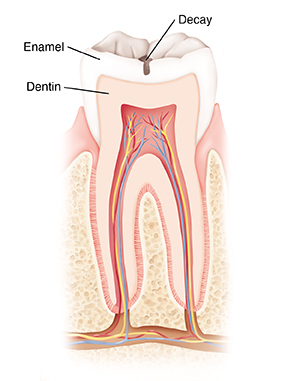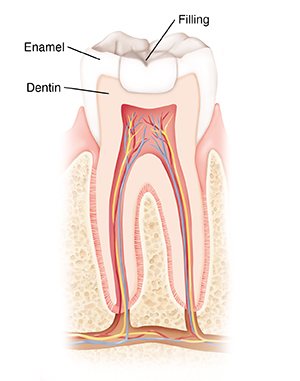Plaque is a sticky coating of bacteria and other substances that forms on your teeth and gums. It can cause two serious problems: tooth decay and gum disease. These problems damage the teeth and gums. They may even lead to tooth loss. When the mouth is well cared for, tooth decay and gum disease can be reversed in their early stages. Better yet, you can prevent these problems from starting by:
-
Brushing at least twice a day and flossing daily.
-
Maintaining a healthy diet.
-
Not snacking between meals on foods high in sugar and starch.
How tooth decay occurs
Tooth decay happens when bacteria in plaque make acids that eat away at the tooth. Cavities (also called caries) are holes that form in the teeth. They are most common in places that are hard to reach with a toothbrush. This includes the grooves at the tops of the back teeth, and on the sides where the teeth touch. In late stages, tooth decay can be painful. It can also lead to tooth loss.
Treating tooth decay
Tooth decay can be treated to keep it from moving farther into the tooth. This is often done by filling cavities. First any tooth decay is removed. This protects the tooth from more damage. Then the cavity is filled with a hard material. This filling protects the damaged tooth and restores the tooth's surface. If the tooth is severely damaged by decay, other treatments are available.
Follow-up visits
Visit your dental team at least every



